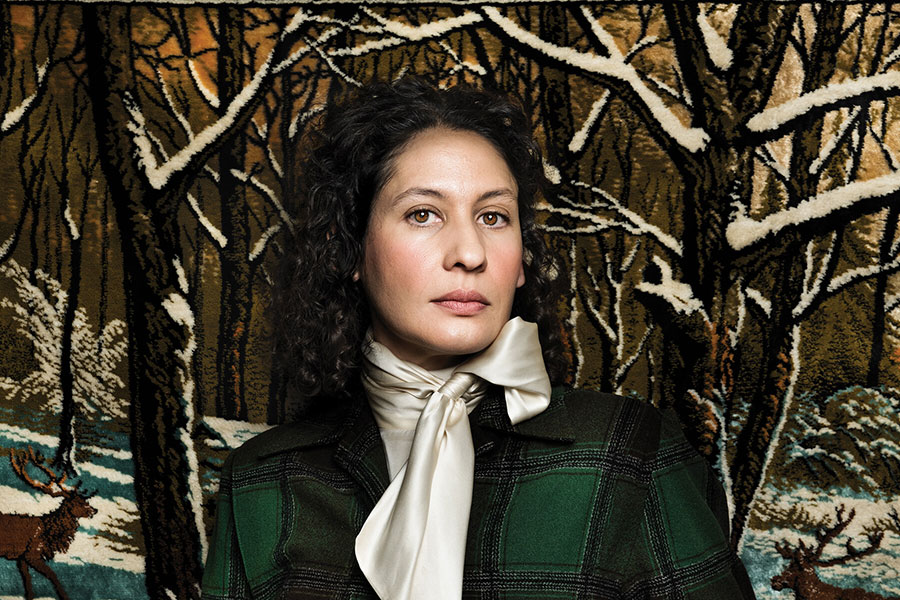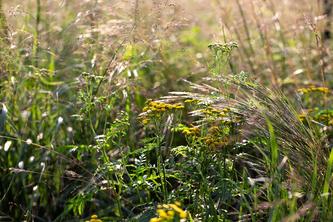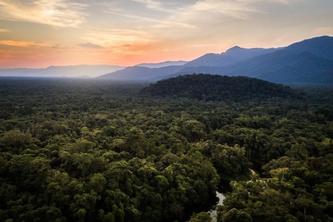
It's the first week of December—but walking through the U of M campus, you’d think it was October. The air is warm enough for only a sweater. Dry leaves blow across lawns that have only recently lost their summer sheen. And snow? There isn’t any.
That lack of snow is top of mind for the people working for the Midwest Climate Adaptation Science Center (MW CASC), located on the U of M Twin Cities campus in St. Paul. MS CASC is a federally funded consortium of research-focused academic, tribal, and nonprofit partners who work collaboratively with the United States Geological Survey.
MW CASC pairs scientists with cultural resource managers to help fish and wildlife adapt to the changing climate in an eight-state region of the Midwest. The U of M is the center’s host institution.
“The loss of winter really affects wildlife,” says Olivia LeDee (MS ’05, PhD ’08), MW CASC’s regional administrator. “That includes everything from invasive species that are no longer limited by cold temperatures to [the emergence of] false springs—where it’s cold, then it’s warm, then it’s cold again, which throws off the signaling patterns for plants and animals.”
LeDee’s passion for animals and wildlife started when she was growing up in Louisiana. Her mother was a middle school science teacher who encouraged her daughter to enter science fairs and participate in 4-H. “Lots of pets. Lots of time outside,” she says, smiling. When she was 15, she won the state environmental issues resolution contest for a project that looked at hypoxia (oxygen deficiency) in the Gulf of Mexico.
Her interest in wildlife took hold as an undergraduate at Loyola University New Orleans, where she majored in biology. A summer research experience in the Rocky Mountains, looking at the behavioral responses of forest birds to hikers, bikers, and dogs on trails, was a lightbulb moment for LeDee, who’d previously focused her research on plant life. She was drawn to the complexity of something she’d previously taken for granted.
After graduation, LeDee enrolled in graduate school at the U of M. During her master’s degree, she studied the piping plover, a threatened shorebird that winters on the shoreline of the Gulf of Mexico. That research led to a PhD in conservation biology.
After graduation, LeDee worked with wildlife vulnerability assessments at the University of Wisconsin and then at the Minnesota Department of Natural Resources. The experience helped her understand that managing wildlife under climate change needed to be integral to her work.
In 2020, Congress appropriated funds to create a Midwest Climate Adaptation Science Center serving eight Midwestern states; LeDee helped champion and launch the effort. The center funds graduate and postdoctoral students’ research and collaborates with other climate adaptation initiatives on the Twin Cities campus, including the U of M Climate Adaptation Partnership.
“This isn’t science that takes place behind closed doors. This is science and research that is engaged with communities and with very real and applied problems,” says Hugh Ratcliffe (MS '21), a climate adaptation scientist at MW CASC. “We focus on adaptation, not mitigation, because we’re faced with the reality of what’s happening.”
In addition to a changing winter’s impact on wildlife, Minnesota is also increasingly vulnerable to heavy rainfall and flooding—which in turn increases sedimentation in streams and rivers. That’s a problem because sediment can clog fish gills, reduce their resistance to disease, lower growth rates, and affect fish larvae and egg development.
To address these types of challenges, MW CASC developed a tool called the Wildlife Adaptation Menu. The menu offers wildlife managers more than 100 options to support wildlife as they adapt to a changing climate, from trapping and removing nest predators in turtle recovery areas to restoring wild rice to benefit waterfowl populations. LeDee also coauthored the recently published Midwest chapter of the Fifth National Climate Assessment, which analyzes trends in climate and global change—both human-induced and natural—for Congress and the President.
Which is not to suggest that MW CASC’s work is delivered from on high. “We talk to resource managers,” says LeDee. “It’s really important that our work is responsive to them, and that it informs near-term decisions so that our conservation investments are best spent for the long term.”
This story was adapted from the original at Minnesota Alumni magazine.
- Categories:
- Agriculture and Environment
- Climate Change





